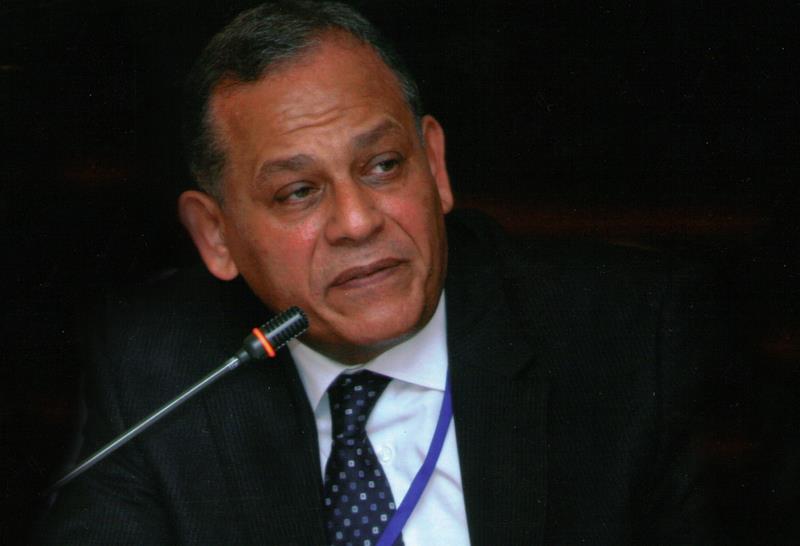On Monday night, member of parliament (MP) Mohamed Anwar Al-Sadat was officially dismissed after 468 members voted in favour of dropping his membership.
“The parliament approved, with a majority of two-thirds votes, revoking the membership of Al-Sadat, given the accusations he was found guilty of, according to the final report of the Legislative Affairs Committee, which recommended such penalisation. Al-Sadat was given a full opportunity to make his defence claims,” a statement published on the official parliament’s side read, announcing Al-Sadat’s vacant seat.
Meanwhile, Al-Sadat said in a press release that his dismissal was “based on false accusations and a media campaign aimed at damaging my image, despite my response to the claims using evidence and my request to stand before court to face the accusations.” Al-Sadat added he filed a lawsuit against two news websites over defamation.
This comes following weeks of investigations of Al-Sadat over three accusations, two of them suggesting he was conducting suspicious activities for foreign entities. In November, Al-Sadat was referred to parliamentary investigations based on a report filed by Minister of Solidarity Ghada Waly, accusing him of leaking a copy of the NGOs draft law to the Dutch ambassador before the law was officially issued.
Other MPs also filed a report claiming that Al-Sadat had forged their signatures on his own NGOs law proposal, but the main accusation which resulted in his dismissal was that he had called for external help by sending negative reviews about the Egyptian parliament’s performance to the Inter-Parliamentary Union (IPU).
According to a report published in Tuesday’s state-owned daily Al-Ahram, MP Bahaa El-Din Abu Shoqa, the president of the Legislative Affairs Committee, read out the committee’s report ahead of the vote. He stated that Al-Sadat sent several e-mails to a member of the Human Rights Committee at the IPU.
The parliament then officially addressed IPU secretary general, Martin Chungong, who reported back that Al-Sadat had been sending several reports regarding internal affairs of the Egyptian parliament “for the purpose of distorting the image of the Egyptian parliament before the IPU,” Al-Ahram’s report stated, adding that Chungong asserted that the IPU has never requested any reports.
On the other hand, Al-Sadat released a screenshot of an e-mail reply by Gaëlle Laroque of the IPU, reading, “dear Mr. Sadat, thank you for your e-mail. I hereby confirm that the IPU and its Committee on the Human Rights of Parliamentarians have not received any complaint from you,” dated 21 February.
Al-Sadat explained that they received from him five press statements describing his stances on different situations in the parliament, and that the statements are usually sent to his contacts’ database of journalists and public figures. The statements included his resignation from the presidency of the Human Rights Committee, the delay of the parliamentary membership of Amr Al-Shobaky based on a court order, his demands to the parliament speaker to address citizens complaints’ of weak parliamentary performance, and an invitation he had sent to President Abdel Fattah Al-Sisi to meet with the committee’s members.
Al-Sadat has been sending such press statements since 2005 and sent to the IPU one arguing that the parliament had failed to accomplish its constitutional duties in its first legislative year, namely the issuing of some laws, according to his colleague MP Samir Ghattas, who attended the investigation with Al-Sadat.
Ghattas said Tuesday that he was the first one among eight members of the parliament to refuse his dismissal. Confirming the three accusations Al-Sadat had been questioned over, Ghattas opinionated that Al-Sadat was falsely accused of conspiracy and seeking foreign reinforcement against his country.
“They gave him the maximum punishment. The parliament should have requested the testimony of the Dutch ambassador, as well as refer to the prosecution authority to determine whether signatures were forged as claimed,” Ghattas told Daily News Egypt.
The issue has a wider scope, which aims at having a one-voiced parliament under the control of one group and to exclude any opposition voices, Ghattas believes.
“Are we going to dismiss one of our members each year?” he asked, in reference to the previous dismissal of MP Tawfik Okasha, which Ghattas had also opposed. “I am aware I might be next. I have already been referred to investigations, but I refuse to have anything imposed on me, and I shall never apologise for my political stances,” he added.
In his short parliamentary term, Al-Sadat clashed with parliament speaker Ali Abdel Aal, accusing him of hindering the work of the Human Rights Committee under his leadership, a claim Ghattas supported and said was the reason of both their resignation from the committee.
Moreover, Al-Sadat had recently exposed to the press what he referred to as a corrupt deal to purchase cars for members of the parliament and manipulating the parliament’s budget in favour of the deal, to which the parliament had responded with clarifications of the deal. In August, Al-Sadat resigned from the presidency of the Human Rights Committee.

